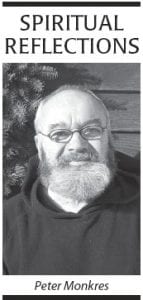The film footage from Haiti is enormously sad. The country is devastated and the number of dead and injured is in the hundreds of thousands. The world is yearning to help. Rescuers, doctors and relief agencies have been flying in from around the world. The Port Au Prince airport is filled with aircraft, stuffed with food, water and medicine.
But all of this positive energy is frustrated by an inability to get help to the victims. The roads are destroyed and won’t accommodate trucks carrying medicine and food. Rescue workers can’t get to victims trapped in the rubble. These frustrations grip our hearts and fill our eyes with tears. Why is it so hard to rescue victims, to help and to heal when disaster strikes? Despite our best efforts, why does it take so long to marshal an adequate response to the victims of 9-11, the tsunami in Southeast Asia, hurricane Katrina or the earthquakes in China and Haiti?
From a spiritual perspective, we would say that our inability to meet human need with compassion is a reminder of human limitation. Our existence is speckled with sin, like pepper on scrambled eggs. It is, we might want to appreciate, easier for us to drop bombs on Afghanistan than deliver loaves of bread to Haiti. This is part of our existential condition.
The existentialists see such realities and conclude that life is absurd. There is, they say, no ultimate meaning or purpose to our days upon the earth. The best we can do is to make personal choices to limit absurdity’s effect upon us. Others say that worldly suffering is part of God’s plan or is caused by demons, devils and their human minions. The sad spectacle of the Rev. Pat Robertson insisting that the earthquake in Haiti happened because Haitians made a Faustian bargain with the devil is one example of the way some seek to rationalize catastrophe. Blaming God or the devil is always a handy way to avoid having to confront tragedies we cannot adequately explain.
Thankfully, most of us have a healthier and more loving response to the suffering of our neighbors. Most of us are looking for ways to make a difference by meeting the needs of the people in Haiti. We want to feed the hungry, clothe the naked and provide health care for the sick. We don’t want to be mean-spirited, judgmental or stingy. We want to imitate Christ.
Imitating Christ begins with our expression of the childlike spirituality we call compassion. We see broken victims on the road of life and we stop and lend a hand. But as we do this, we become excruciatingly aware of the limitations of our love.
Jesus, the fully human child of God, once was summoned to attend to his dying friend Lazarus. He couldn’t get there in time to offer aid. When he arrived four days late, his friends were angry. “Couldn’t you manage to get here before Lazarus died?” Martha asked. And others also wondered at his absence. This story reminds us that we cannot always be there to ameliorate suffering and tragedy. Even Jesus could not do that.
Although Jesus was not able to be present when Lazarus died, he was able to weep before the tomb and transform loss into possibility. When Jesus arrived at the place where Lazarus lay, those present rolled away the stone and Jesus cried out, “Lazarus! Come forth!” We do not really know what happened, other than the ministry of Jesus caused there to be more than death, sorrow and disillusionment in the little town of Bethany. As he promised his friend Martha, “Even now, God will give you what you ask of him. Your brother will rise again.”
Stories are coming forth from Haiti of survivors singing in the streets outside of the hospitals in Port Au Prince. They are singing the sick back into life. And, Karl Paulnack, director of the Music Division of Boston Conservatory, gave a speech several years ago in which he remembered that playing the piano on the day after the Twin Towers collapsed seemed silly, irreverent and pointless. He wondered if he would ever want to play again. But, then, noticed that on the evening of 9-11 New Yorkers gathered to sing around the firehouses. They sang We Shall Overcome
and America the Beautiful.
Later that week, the Philharmonic played Brahm’s Requiem
at Lincoln Center. “That was the beginning of a sense that life might go on,” Paulnack says.
We can’t do all things but we can find the opportunity in crisis and offer the compassion we possess, trusting that our ministry will be magnified by the contributions of our brothers and sisters around the world. God grant that our strength to love may be made perfect, even in our weakness.
Each month a member of the
Cook County Ministerium
will offer Spiritual Reflections.
For January, our contributor
is Reverend Peter R. Monkres
of the First Congregational
Church – United Church of
Christ, Grand Marais, a Just
Peace church.



Loading Comments